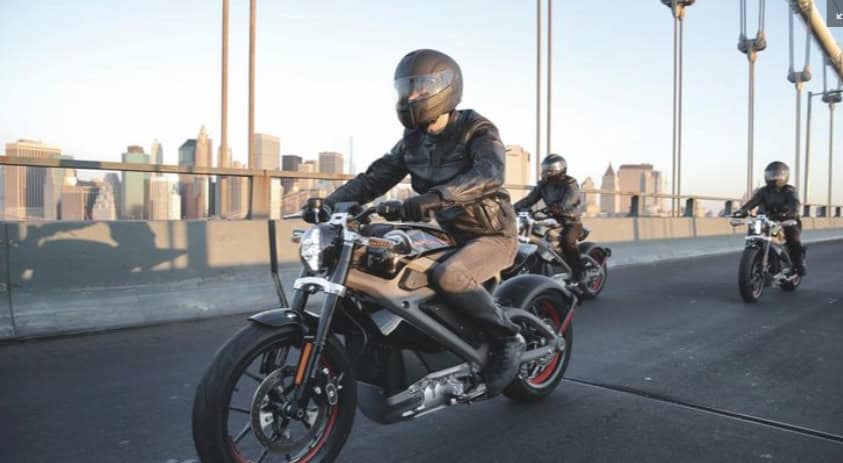
Harley-Davidson Inc. announced early Tuesday with its fourth quarter 2017 earnings report that it is on track to launch its first electric motorcycle within 18 months and that it will invest more aggressively in the electric avenue in an attempt to inspire ridership. But on the flip side, the motorcycle manufacturer also revealed plans to close its Kansas City, Mo., plant and fold those operations into its Pennsylvania facility.
The Milwaukee-based company’s (NYSE: HOG) announcement on its significant commitment to the future of its motorcycle technology and plant closure comes as motorcycle sales fell 6.7 percent worldwide in 2017, with the sales decline even shaper domestically, falling 8.5 percent.
Both Harley-Davidson’s net income and earnings per share slowed in its fourth quarter 2017. The company credited that to being adversely impacted by a $53.1 million income tax charge related to the enactment of the 2017 Tax Cuts and Jobs Act and a $29.4 million pre-tax charge for a voluntary product recall.
“The EV motorcycle market is in its infancy today, but we believe premium Harley-Davidson electric motorcycles will help drive excitement and participation in the sport globally,” said Matt Levatich, Harley-Davidson’s president and CEO. “As we expand our EV capabilities and commitment, we get even more excited about the role electric motorcycles will play in growing our business.”
Harley-Davidson more or less shocked customers, motorcycle enthusiasts and techies in 2014 when it revealed an electric bike that accelerated from zero to 60 in less than four seconds. With its LiveWire prototype, Harley put itself on the starting grid and has been advancing the product since.
However, declining motorcycle sales have led to its plans to close its Kansas City plant as part of a multi-year optimization initiative. The plant closing will affect about 800 Kansas City employees. Operations will be folded into Harley’s York, Pa., plant.
“This decision was made after very careful consideration of our manufacturing footprint and the appropriate capacity given the current business environment,” Harley spokeswoman Bernadette Lauer said. “We are constantly evaluating capacity and our current U.S. capacity exceeds U.S. demand.”
The move will create 450 jobs at the York facility and the Kansas City plant will close around July 2019, according to Lauer. According to the Milwaukee Business Journal’s list of largest manufacturers published last June, Harley-Davidson had about 2,700 Milwaukee-area employees and about 6,000 companywide.

For its fourth quarter, earnings decreased to 5 cents per share from 27 cents per share in the fourth quarter of 2016. Its fourth quarter net income was $8.3 million, with consolidated revenue of $1.23 billion versus net income of $47.2 million on consolidated revenue of $1.11 billion in the fourth quarter of 2016.
Annual numbers also lagged behind 2016. For the year, earnings per share decreased to $3.02 from $3.83 the year before. Harley’s full-year net income was $521.8 million on consolidated revenue of $5.65 billion versus net income of $692.2 million on consolidated revenue of $6 billion a year ago.
“Our actions to address the current environment through disciplined supply and cost management position us well as we drive to achieve our long-term objectives to build the next generation of Harley-Davidson riders globally,” Levatich said. “We finished 2017 with over 32,000 more Harley-Davidson riders in the U.S. than one year ago, and we delivered another year of strong cash generation and cash returns to our shareholders.”

